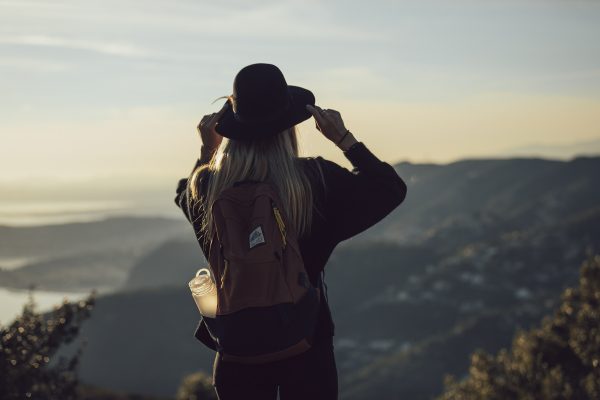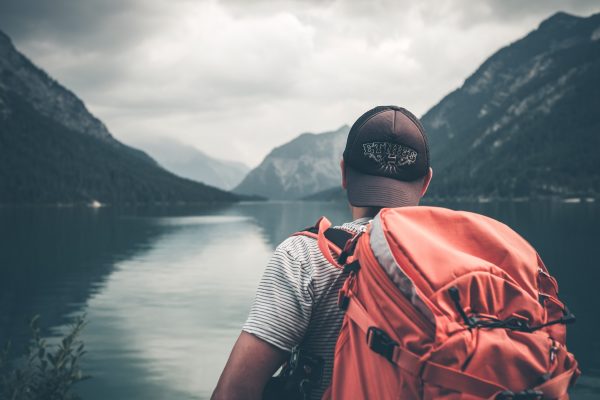Travel Blogging
8 Safety Tips for Traveling Alone as a Student
Traveling solo offers students a unique blend of adventure, self-discovery, and freedom. It allows them to step out of their comfort zones, immerse in diverse cultures, and build invaluable life skills. However, as thrilling as solo journeys can be, they also bring forth the pressing issue of safety. Especially for young travelers, being alert and prepared becomes paramount to ensure that their explorations remain both enriching and secure.

Pre-Travel Preparations
Before embarking on a solo adventure, understanding your destination is paramount. Dive deep into local customs, laws, and potential safety concerns to ensure you’re well-prepared. If you don’t have the time to familiarize yourself with local maps and transportation options beforehand, use essay writer service EssayHub.com for academic help.
Informing trusted individuals of your itinerary can add an extra level of protection in case an emergency arises.
Travel insurance should not only be seen as a wise investment, but as an absolute must! Ensure you pick a comprehensive plan that caters to your specific needs.
Lastly, the importance of safeguarding essential documents can’t be overstated. Ensure passports, visas, and other key papers are stored securely. Additionally, having backups—either digital or physical copies—can be invaluable in unexpected situations.
Safe Accommodations
Choosing where you rest each night is a crucial decision when traveling alone. It’s always advisable to opt for reputable lodging options, even if they might be slightly pricier. Reading reviews and ratings from previous guests can provide insight into the safety and quality of the accommodation.
Staying connected is not just for social reasons. Whenever you settle into a new place, check-in regularly with a friend or family member. This simple act not only keeps you connected but also ensures someone is always aware of your location.
While ground-floor accommodations might offer convenience, they can sometimes pose safety risks. Higher floors tend to be safer as they are less accessible to potential intruders. Prioritizing this can add an extra layer of security to your stay.
Navigating the New Environment
When exploring unfamiliar terrains at night, it’s of vital importance to avoid unlit and isolated paths for safety and navigation. These areas not only offer better visibility but also reduce the chances of unwanted encounters. Safety often lies in numbers and visibility.
Before embarking on your journey, take the time to familiarize yourself with local emergency numbers. Whether it’s the police, ambulance, or fire brigade, knowing whom to call in a crisis can make a significant difference.
Traveling is about blending in, not standing out. Keeping a low profile, dressing modestly, and avoiding ostentatious displays can help you merge with the local crowd. This not only enriches your travel experience but also ensures you don’t draw unnecessary attention.
Smart Financial Decisions
When exploring new places as a student, financial safety is paramount. Start by diversifying your money storage: don’t keep all cash and cards in one place; instead, distribute them between different bags and pockets. This reduces potential losses from theft. In busy marketplaces or tourist spots, discreetly handle money. Use smaller denominations to minimize exposure and avoid showing large bills. Opt for ATMs situated in well-lit, populated areas, especially those inside banks. Always be aware of your surroundings during a transaction, ensuring your personal and financial security.
Health and Well-being
Solo travel offers students a unique sense of freedom, but health should remain a priority. Before embarking on your journey, research any health advisories or vaccination requirements specific to your destination. This preparation helps in avoiding unexpected health risks. Along with your essentials, always carry a personal first-aid kit. From minor cuts to headaches, being self-reliant can be a lifesaver in unfamiliar territories. Lastly, while it’s tempting to let loose, maintain sobriety. Being in full control of your faculties ensures better judgment and safety, especially in unknown locales.
Tech and Communication
In our digital age, technology can be a traveler’s best ally. Location-sharing apps, when used with a trusted friend or family member, can provide an added layer of safety by allowing them to keep track of your whereabouts.
Equally important is ensuring your devices remain charged. Carrying a portable power bank guarantees you stay connected, especially in emergencies. Yet, with the boon of connectivity comes potential risks.
Public Wi-Fi networks, often unsecured, are playgrounds for cyber threats. Whenever you connect to use the best essay writing services, consider using a Virtual Private Network (VPN) to encrypt your online activities and safeguard your personal data.
Interacting with Locals and New Acquaintances
Meeting new people is an enriching part of the travel experience. However, always prioritize your safety. Trusting your instincts is essential; if someone or something feels off, it’s okay to walk away. In the excitement of sharing travel stories, be cautious not to divulge too much personal information. Over-sharing can sometimes land you in vulnerable situations. Lastly, if you plan to meet someone you’ve just met, choose public spaces like cafes or popular landmarks. These settings are not only enjoyable but also offer an added layer of security.

Transit and Transportation
Transportation is a vital aspect of travel, and its safety shouldn’t be overlooked. When choosing a ride, always opt for reputable transportation services. Reviews and recommendations can be handy indicators of reliability. If you’re leaning towards renting a vehicle, inspect its condition thoroughly before driving off. Ensure brakes, lights, and signals work correctly to avoid potential mishaps. Additionally, while the allure of nighttime exploration might be tempting, it’s best to refrain from traveling during dark hours in unfamiliar territories. Sticking to daylight hours minimizes risks and enhances your overall travel experience.
Conclusion
Solo travel offers students a unique blend of independence and empowerment. As enriching as these adventures can be, it’s paramount that safety remains at the forefront of every journey. By consistently prioritizing caution, students can ensure their trips are both enjoyable and free from undue risks. Adventure awaits, but always with safety in tow.
